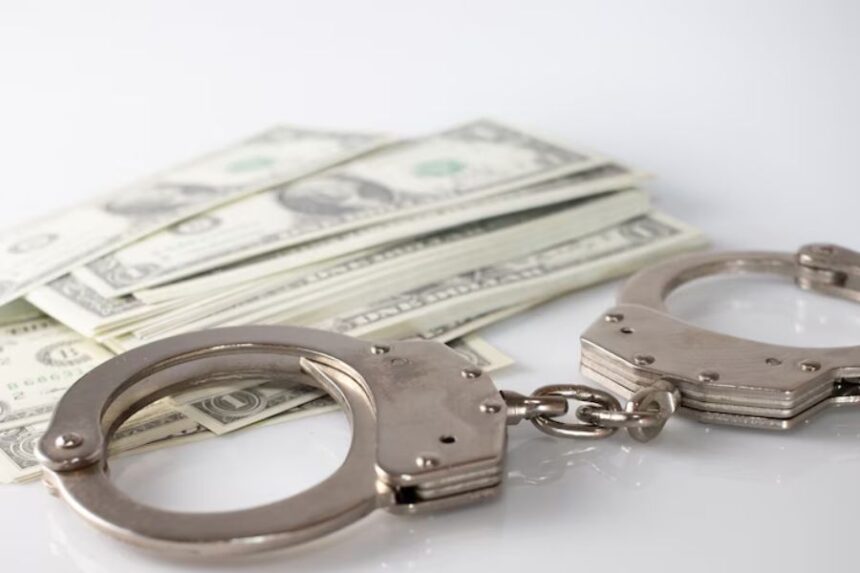Governor Brian Kemp of Georgia consented to a controversial cash bail bill in May. Bail reform advocates describe the new law, which has been in effect since July, as a setback to the progress made on criminal justice policies in the past years.
Content of the New Law
The law (Senate Bill 63) adds 30 more misdemeanor and felony offenses to the list of bail-hindered crimes. Defendants of such crimes would need to post cash bail.
Furthermore, the law prevents anybody or firm from posting cash bail more than thrice annually. The new law does not allow the capping of surety bonds that bail bond agents use. Lawyers such as criminal defense attorney Mark Sherman are on their toes about how it could change criminal justice now and in the future.
What Was Obtainable Under the Old Law
The old law only mandated 14 offenses (mainly violent crimes) for cash bail. However, many other crimes have joined the list since July. Examples include possession of cannabis, unlawful assembly, and failure to appear in court for a traffic breach.
The Sharp Contrast and Implications
The new law is in sharp contrast to the state’s over twenty years of criminal reforms. The most recent victim is the 2018 law that former Governor Nathan Deal championed. The 2018 law attempted to make the legal system more equitable for defendants of non-violent misdemeanors.
Legal experts, civil rights groups, and criminal justice reform advocates have lampooned this new law.
One of the critics of this new law is Darren Lenard Hutchinson, the faculty director for Civil Rights and Social Justice at Emory University. According to the director, mandatory cash bail has a disproportionate effect on low-income earners, who find it challenging to afford bail in some circumstances. People of color are also victims of this law as they usually get higher bail amounts than white people.
Hutchinson quotes studies indicating that 30-50 percent of individuals detained pre-trial remain in custody because they cannot afford bail. Such bail amounts often range between $1,000 and $2,500. While this may seem insignificant to many, it is a significant amount for poor people.
Hutchinson furthered that those who cannot afford bail stand a higher chance of conviction. Due to their incarceration, such persons find it challenging to communicate seamlessly with witnesses and have unfettered access to their legal representatives.
Those detained before trial find it almost impossible to build a successful case for themselves.
Criticisms from Institutions
Various religious groups and non-profits berated the new law over the imposition of an annual limit on posting bail. According to the Athens Area Courtwatch Project, a body of volunteers serving as watchdogs in the Athens-Clarke County legal system, the law will sorely impair their ability to help marginalized residents with bail relief. The group has helped about 100 people since starting their project in 2021.
The group condemned the fact that suspects waste away in jail due to their inability to pay cash bail. It is cruel to penalize people based on arrest instead of conviction.
The Athens Area Courtwatch Project said the new law will undoubtedly increase the rate of incarceration. This will invariably lead to higher crime rates and put more burden on taxpayers.
Non-violent offenders will go to prison. They will lose the bond with relatives, jobs, and housing while in incarceration.
Similarly, the American Civil Liberties Union, Georgia Chapter, criticized the new law. The ACLU described the law as costly, cruel, and counterproductive. It also revealed its intention to sue Governor Kemp over the development. The group alleged that the governor traded the good of his constituents for political gain.
The ACLU claimed that the law would push many more poor and mentally unstable persons to prison. It will further worsen the state’s statistics as one with the highest number of prisoners nationwide.
The Governor’s Position on the Law
Governor Kemp praised the state legislature for “commendable” work when signing the bill into law. He observed that the law attempts to sanitize Georgia by stopping dangerous people from walking across the state to commit more offenses.
He observed that the legislation would make communities safer and arm the judiciary with potent tools to prosecute violent criminals.
Offenses that Require Bail under the New Law
The crimes that require cash bail under the new law include burglary, pimping, robbery, rape, kidnapping, felony or murder, aggravated child molestation, armed robbery, first-degree hijack of a motor vehicle, and aggravated sodomy. Also included in the list are child molestation, aggravated sexual battery, enticing a child for indecency, aggravated battery, escape, aggravated assault, bail jumping, driving under the influence, stalking, and trafficking controlled substances.
Furthermore, the list includes first-offender probationers and convicted felons possessing firearms, gaining access to an automobile to commit a crime, habitual violation, possession of weapons when committing or attempting to commit some offenses, participating in criminal gang activity, and offenses entailing family violence. The long list also has unlawful assembly, riot, racketeering and conspiracy, domestic terrorism, battery, breach of oath by a public officer, identity fraud, monetary transaction card theft, inciting to riot, financial transaction card fraud, voluntary manslaughter, forgery, and human trafficking for sexual servitude or labor.
The exhaustive list also includes cruelty to animals, exploitation and intimidation of people living with disabilities, residents, and the elderly; failure to appear during a suspect’s second or subsequent crime; manufacturing, possession, or trading of controlled substances; bribery; laying drags, fleeing or attempting to escape a law enforcement agent, theft by extortion, theft by taking in a suspect’s second or subsequent attempt, and theft by deception.
The law also highlights obstruction of a law enforcement agent, reckless driving in a suspect’s second or subsequent attempt, criminal trespass in a suspect’s second or subsequent attempt, reckless stunt driving in an individual’s second or subsequent attempt, enhancing or organizing an exhibition of drag races, destruction, removal, concealment, or transfer of property subject to a security interest, and possession of weapons for the commission of an offense.
Conclusion
There is no gainsaying that this law has changed the tide of the criminal justice system in the state. As discussed in the article, the new law has widened the offense net beyond imagination. You must tread cautiously to avoid finding yourself in jail.
If you have a criminal case, engage a local criminal defense attorney who understands the complexities of the law and can safeguard your interests.




